Responding to COVID-19
Carnegie Mellon University faculty, students, alumni and staff are responding to the pandemic with impactful research and innovative solutions.
Here you'll find recordings of recent faculty panels, as well as videos and stories, which the Alumni Association has assembled to examine how we are addressing critical COVID-19 topics through our transformational research.
Accelerating Solutions: CMU’s Pioneering Work on COVID-19
CMU is tackling the COVID-19 pandemic with game-changing research that will ultimately contribute to the health and safety of society.
Michael McQuade, CMU’s Vice President for Research, and faculty experts spoke with three CMU faculty members on August 18 about their innovative work that is increasing data for contact tracing, unlocking the mysteries of high-risk patients and creating vaccination delivery solutions.
This is the second event in our virtual series on CMU researchers’ response to COVID-19.
Watch the session:
Meet the Presenters
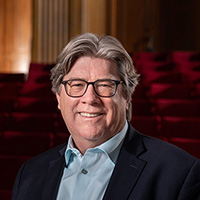
J. Michael McQuade is Carnegie Mellon University's vice president for research, providing leadership for the university's research enterprise and advocating for the role that science, technology and innovation play nationally and globally.
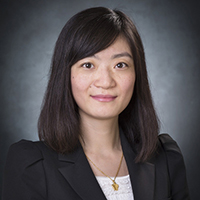
Beibei Li is the Anna Loomis McCandless Chair and Associate Professor of IT and Management in the Heinz College of Information Systems and Public Policy.
She shares her recent work on how people react to digital contact tracing and social distancing during COVID-19, and how it varies across socio-economic and political demographics.
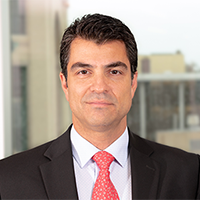
Burak Ozdoganlar is the Ver Planck Professor of Mechanical Engineering, with courtesy appointments in both Biomedical Engineering and Materials Science & Engineering in the College of Engineering.
He discusses his research related to the use of microneedle arrays for the COVID-19 vaccination, as well as his work with regional hospital ICUs on design and fabrication of containment enclosures and NP swabs for testing.

Elizabeth Wayne is Assistant Professor, Biomedical Engineering and Chemical Engineering in the College of Engineering.
She shares her research on developing COVID-19 therapeutics to target cells in individuals with chronic inflammatory conditions and at high risk for serious complications.
CMU’s Work Addressing COVID-19
The coronavirus pandemic has changed our world. On July 9, 2020, Vice President for Research Michael McQuade and faculty experts came together to discuss how CMU is tackling society’s biggest COVID-19 related challenges and addressing the most urgent issues for humanity.
Hear directly from three faculty members on how they are addressing the pandemic through their research, and how crucial it is to have accurate data in the management of COVID-19.
Watch the session:
Meet the Presenters

J. Michael McQuade is Carnegie Mellon University's vice president for research, providing leadership for the university's research enterprise and advocating for the role that science, technology and innovation play nationally and globally.
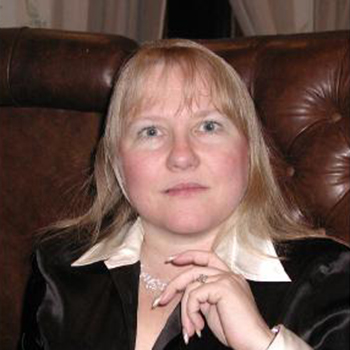
Kathleen M. Carley is a professor of computer science in the Institute for Software Research and the director of the Center for Informed Democracy and Social Cybersecurity (IDeaS) and Center for Computational Analysis.
She highlights her work on misinformation and disinformation in social media, and the role bots play during the pandemic.
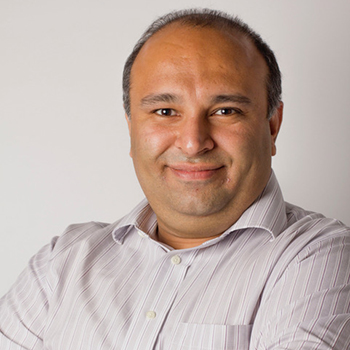
Rayid Ghani is the Distinguished Career Professor in the Machine Learning Department and the Heinz College of Information Systems and Public Policy.
He shares his research which works to develop tools to ensure that technologies created to fight COVID-19 do not disadvantage vulnerable populations when they’re used to inform policy decisions.
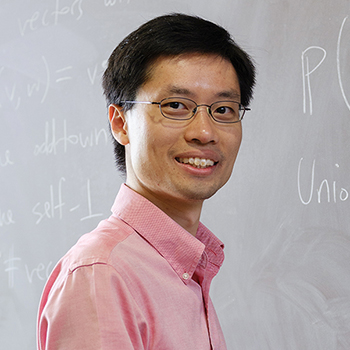
Po-Shen Loh, professor of mathematics in the Mellon College of Science, discusses the innovative contact tracing app, NOVID, which he leads.
NOVID was the first anonymous contact tracing app published for the USA, and uses ultrasound technology to achieve its unique level of accuracy.
Learn More about the NOVID App from Po-Shen Loh
NOVID, a contact tracing app that anonymously traces users' exposure to COVID-19, is the first such app in the world to demonstrate the distance accuracy required to perform contact tracing without significant false positives.
NOVID is developed by a team led by Carnegie Mellon University mathematician, Professor Po-Shen Loh, who shares how NOVID is tracing individuals’ COVID-19 exposure.
When Science Stopped: Research in the Age of Social Distancing
When COVID-19 hit around the world, many scientists shuttered their labs and paused their research. On May 26, 2020, a CMU expert panel of scientists and researchers gathered to discuss critical issues for the scientific community.
Hear their point of view on how this disruption to the progress of potentially lifesaving and world-changing efforts will affect humanity, and how we can we build a safe, socially distant scientific infrastructure in this transformed world.
Watch the session:
Meet the Presenters
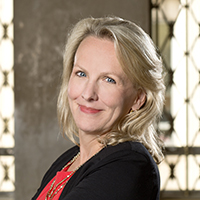
Rebecca Doerge is the Glen de Vries Dean of the Mellon College of Science.
Doerge's research program focuses on statistical bioinformatics.
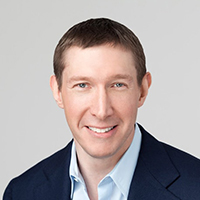
Glen de Vries (S 1994) received his undergraduate degree in molecular biology and genetics from CMU.
He started Medidata, a life sciences technology provider that greatly enhances the way clinical research is designed, conducted and analyzed.
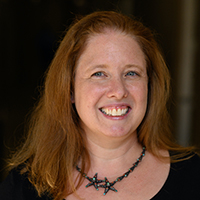
Luisa Hiller's laboratory is interested in understanding the role of bacteria in both health and disease.
The lab's current focus is on the commensal pathogen Streptococcus pneumoniae.
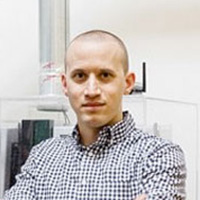
D.J. Kleinbaum (S 2005) co-founded Emerald Therapeutics, a start up that created a laboratory operating system that lets other labs send instructions for experiments, which are then completed by robots with results returned within 24 hours.
Explore Deeper
Working Together
- Pandemic Safety Officers Step Up to Help Out (6/24/2020)
- Tartans Develop Tools and Resources to Support Mind, Body and Spirit During Pandemic (6/12/2020)
- Tartans Connect People with Food, Medicine, Supplies and Job Opportunities (5/8/2020)
- CMU Alumni Tackle COVID-19 with Creativity, Intelligence and Strength (4/3/2020)